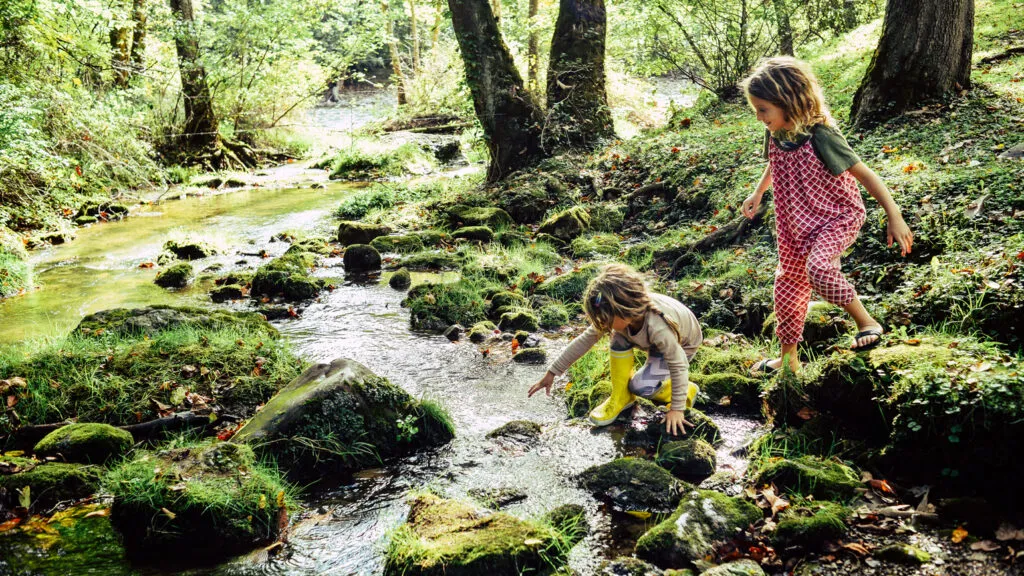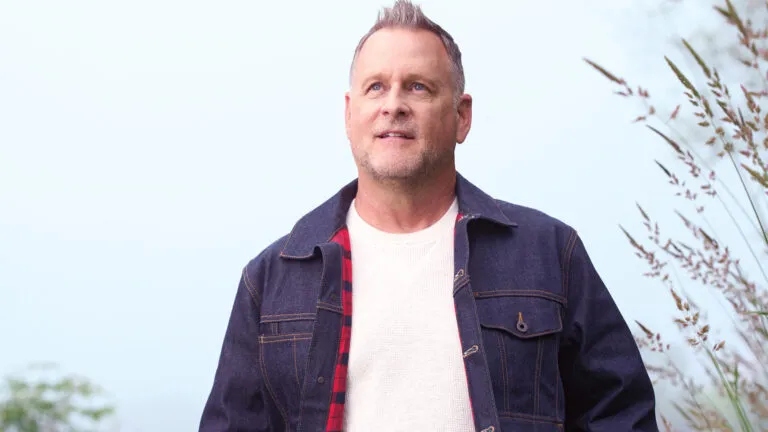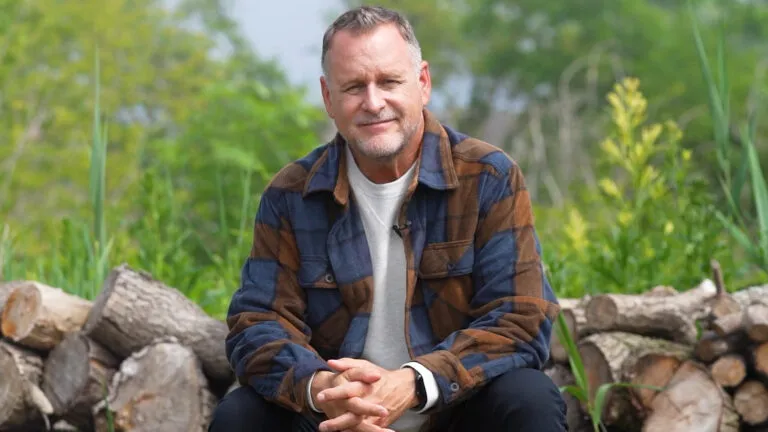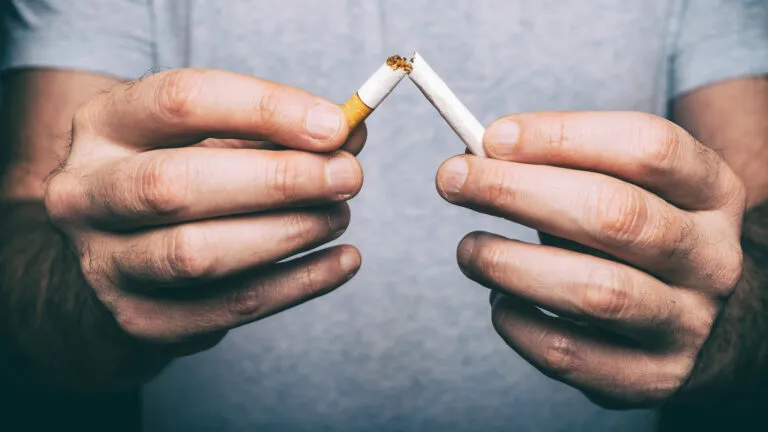“So we’ll do the service on Saturday morning, right?” I said to my brother, David, as we stood looking down on the Arkansas River. We’d decided to scatter Mama’s ashes there because the precious few good memories we had of her were connected to water. The times when she was sober and would join us kids in the rain-swollen creek to catch fish and play with turtles, her contagious giggle rippling over us. Or give us food coloring to put in bottles of water so that we could make rainbows wherever we wanted. Or belt out “Old Man River” right along with the radio.
“Would you say something for Mama, Sissy?” David asked. Instantly I saw my 46-year-old brother again as a three-year-old in droopy training pants asking, “Where did Mama go, Sissy? Why did she leave?”
I was nine when Mama first left me, David, our sister Pat, our brother Phil, and Dad for what she seemed to care about most—drinking. In some ways it came as a relief. No more trips to the Nine-Mile Corner where she’d leave us kids in the car while she went inside to have beers. No more shouting matches between her and Dad, when I’d quietly steal out back with my dog, Shorty, and a blanket and let the low murmuring of the creek soothe me to sleep.
I lay awake many nights replaying in my mind the image of Mama driving away from our Oklahoma farm in a cloud of red dust. I knew her father had passed away when she was young, and I wondered if she had ached to have him hold her the way I ached to feel her arms around me. Please give me another chance to make her love me, I begged God. But each time Mama returned, it didn’t matter how many pictures of a happy family I drew or how many love letters I wrote to her. Her addiction would always draw her away again, to countless bars in countless towns, searching for a peace she never seemed to find.
By the time I was a young adult I was tired of trying to win a place in Mama’s heart. I moved out to Colorado and focused my attention on raising my own family. My older brother, Phil, moved away too, but he succumbed to the same relentless demons Mama had wrestled with, dying as a result of his alcoholism in 1998.
Mama finally stopped denying her drinking problem. But admitting her illness did not make it go away. When David had called me a few weeks earlier, I knew it was taking its final toll. “Sissy, she’s not eating—just drinking. Won’t let me help her. What should I do?”
It took the police’s help to get Mama to let David clean her up and drive her to rehab in Enid, Okla. She died there a few short weeks later.
“I’m sorry I wasn’t here to help you with her this time,” I said to David, grimacing at the memory of Mama’s trailer, littered with empty liquor bottles, rotting food and dirty clothes. We’d packed all her worldly belongings in boxes. Soon they would be all we had left of her. “Yes, I’ll try to write something,” I said in a low voice. “I’ll give it a try.”
And I did, but there didn’t seem to be any words left when it came to Mama. How many times had I pleaded for her to come back and be part of our family again? Why hadn’t it made any difference? Dad had struggled so hard, taking care of our farm and four kids on top of working long hours at the railroad, while Mama poured her love into the bottle. The night before her memorial, I stayed up for hours trying to think of something—anything—to say. But whatever I wrote came out as angry and confused as my feelings. It wasn’t working. The crumpled sheets of paper tumbled over the boxes around me like snowballs. Why should I do this for her now? I thought. She doesn’t deserve it.
I gave up and went to bed. I tossed and turned like I had when I was a child whose mother had gone away. Now she was gone forever and I had never really gotten the chance to know her. In many ways, I’d been mourning her loss my entire life.
God, I don’t know how to feel anything but bitterness when I think of Mama. You know how much I’ve wanted to forgive her, but I can’t figure out how to begin.
At last I fell asleep. All at once I was a little girl again sitting out back by the creek behind our farm. Mama was beside me. Except she was a little girl too. I’d never seen her look so happy, almost radiant. Together we were mixing food coloring into bottles of water. Then we poured the water into the creek. The streaks of red and blue and green and gold sparkled in the sunlight. Mama let out her bubbly giggle and it too seemed to float on the surface. I awoke with the sound of her laughter still in my ears.
For a moment I kept my eyes closed, trying to hold onto the sense of contentment and peace I’d felt in the dream. Never before had I pictured Mama as an innocent child. She’d never really talked about growing up. I turned on the light and went to a box in the corner containing some books and papers we’d found in Mama’s trailer.
I lifted out a photo album and slowly turned the pages. I came to a loose picture with a penciled description. It was Mama as a round-faced toddler nicknamed Chub clinging to an older sibling the way David had clung to me after Mama had left us. I reached back into the box and came up with a small hardbound journal Mama had kept in her youth. I’d never known that Mama wrote!
I read the words hungrily, learning that Mama’s father had been an alcoholic too. He’d died early and her mother had to leave five kids at home while she worked to keep the family fed.
So Mama knew what it was like, feeling abandoned. Then why did she put us through it?
I reached into the box once more and came up with a sheaf of yellowing papers. It took me a moment to realize what they were. Letters. The ones my brothers and sisters and I had written her as children. And all those drawings I’d made for her—they were there too. She’d kept them all these years.
Could it be that Mama wanted to love us as much as we wanted to be loved by her? Mama had many demons, there was no question about it. But maybe she had her angels too, nudging her to hold onto these symbols of her family’s love.
Early the next morning I stood with David on a fallen cottonwood tree over the Arkansas River. The two of us were silent a few moments before David turned to me. I pulled a piece of paper from my jacket pocket. The wind whipped it about as I unfolded it. I stretched it taut between my trembling hands and began to read.
“Mama, I can envision you now as a six-year-old, so frightened when your father died. I know you suffered when your mother was forced to go off to work. You and your two sisters and two brothers were left by yourselves, to make it on your own the best you could.
“I thank you for your whimsical, childlike sparkle. For teaching me to appreciate music and for helping me see the magic in simple things.
“I know you were probably never free from the guilt of leaving Pat and Phil and David and me when we needed you. I’m sure that guilt fueled your urge to drink and your search for the ‘place that would make you happy.’” My voice broke and I had to stop reading. David gave me an encouraging nudge.
“I see you now, a child again, round-faced and innocent, floating away to a home where you will finally forgive yourself, be cleansed of your addiction and be at peace.” I refolded the paper and turned to David.
“Good job, Sissy,” he said.
My brother opened the urn and let Mama’s ashes float up on the wind and gently fall onto the river. As we watched the ashes sparkle on the water, I again pictured those two little girls sitting by a creek. The image from my dream seemed real to me now. I knew a part of me would always be there beside the creek with Mama, washing away the past with magical colored water, our laughter rising up as light and free as the wings of angels.





